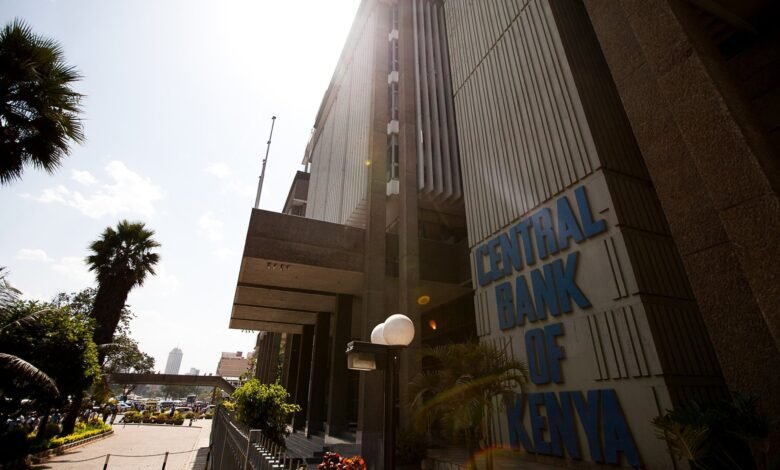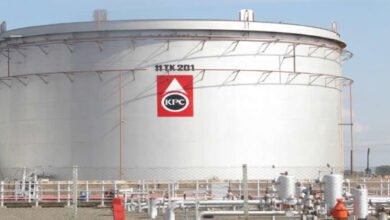
Kenya spent about Ksh.70 billion to repay its debt, according to the latest records from the Treasury.
The debt repayment has seen Kenya’s foreign exchange reserve dip to 3.9 months of import coverc, down from 4.1 months.
According to the Central Bank of Kenya, the country’s foreign exchange reserves dropped by $487 million (Sh63.9 billion) in the week ending July 19, 2024.
This is after Kenya repaid a significant part of its external debt, bringing down the resources that are critical in supporting the local currency.
The current reserves can Only support 3.9 months of import duty, down from 4.1 months.
The forex fall short of 4.5 months of import cover necessary to sustain the country’s imports.
The forex dipped after Kenya serviced Ksh.70 billion in external debts.
Part of the Ksh.70 billion includes Ksh.56 billion which was channeled to service Chinese built Standard Gauge Railway (SGR).
Also Read: Kenya’s Forex Reserves Drops to Ksh.63 Billion on Debt Repayment
Kenya has the fastest growing economy in Africa and a vibrant business center. But President William Ruto’s government is desperate to stave off default.
The country’s staggering Ksh.10.5 trillion ($80 billion) in domestic and foreign public debt accounts for nearly three-quarters of Kenya’s entire economic output, according to a recent report from the United Nations Conference on Trade and Development.
Interest payments alone are eating up 27 percent of the revenue collected.
President Ruto had promoted Finance Bill 2024 as necessary to avoid defaulting on the country’s debt, but the violent reaction to Parliament’s approval prompted him to abruptly reverse course and reject the legislation he had asked for.
“Listening keenly to the people of Kenya,” he said, “I will not sign the 2024 finance bill, and it shall subsequently be withdrawn.”
Just two weeks before he rescinded the Bill, the International Monetary Fund (IMF) and Kenyan authorities had reached an agreement on a package of comprehensive reforms and tax increases needed to get the country on a more stable financial footing.
The policy review, required when the I.M.F. lends money to distressed nations, warned of a “significant shortfall in tax collection” and a deteriorating fiscal outlook.
I.M.F. lending to the troubled East African nation now totals $3.6 billion.






I do believe all the concepts you have offered for your post. They are really convincing and will definitely work. Still, the posts are very brief for novices. May you please extend them a little from next time? Thanks for the post.
Wonderful goods from you, man. I’ve understand your stuff prior to and you are just extremely wonderful. I really like what you’ve received right here, certainly like what you’re saying and the best way in which you say it. You’re making it entertaining and you continue to take care of to stay it wise. I can not wait to learn far more from you. That is actually a wonderful website.
I’m really impressed together with your writing skills as neatly as with the layout in your weblog. Is that this a paid theme or did you modify it yourself? Either way stay up the excellent high quality writing, it is uncommon to peer a nice blog like this one these days!
Those are yours alright! . We at least need to get these people stealing images to start blogging! They probably just did a image search and grabbed them. They look good though!
Simply desire to say your article is as astounding. The clarity in your post is simply excellent and i can assume you are an expert on this subject. Fine with your permission allow me to grab your RSS feed to keep updated with forthcoming post. Thanks a million and please continue the rewarding work.
Once I initially commented I clicked the -Notify me when new comments are added- checkbox and now each time a comment is added I get four emails with the identical comment. Is there any way you can remove me from that service? Thanks!
Usually I do not learn article on blogs, but I wish to say that this write-up very compelled me to check out and do so! Your writing taste has been amazed me. Thank you, very nice article.
I cling on to listening to the newscast talk about getting boundless online grant applications so I have been looking around for the most excellent site to get one. Could you advise me please, where could i get some?
I like the helpful info you provide in your articles. I will bookmark your weblog and check again here regularly. I am quite certain I’ll learn plenty of new stuff right here! Good luck for the next!
I truly enjoy examining on this internet site, it has got wonderful content. “Sometime they’ll give a war and nobody will come.” by Carl Sandburg.
Good – I should definitely pronounce, impressed with your web site. I had no trouble navigating through all tabs and related info ended up being truly easy to do to access. I recently found what I hoped for before you know it at all. Reasonably unusual. Is likely to appreciate it for those who add forums or something, web site theme . a tones way for your customer to communicate. Excellent task..
Hey there, I think your site might be having browser compatibility issues. When I look at your blog in Safari, it looks fine but when opening in Internet Explorer, it has some overlapping. I just wanted to give you a quick heads up! Other then that, terrific blog!
Hi, Neat post. There is a problem with your website in internet explorer, would test this… IE still is the market leader and a good portion of people will miss your great writing due to this problem.
Only wanna remark that you have a very decent web site, I enjoy the style it actually stands out.
I am glad to be a visitant of this pure site! , appreciate it for this rare info ! .
I am curious to find out what blog system you are working with? I’m experiencing some small security problems with my latest blog and I’d like to find something more safe. Do you have any recommendations?
Thank you for another informative blog. Where else may
juszt I get that kind oof information written in such a perdfect means?
I have a challenge that I amm simply now working on, and I’ve been on the look out for such information. https://saek-kerkiras.edu.gr/employer/22bit-22bit-casino44/
Does your website have a contact page? I’m having a tough time locating it but, I’d like to send you an email. I’ve got some recommendations for your blog you might be interested in hearing. Either way, great site and I look forward to seeing it improve over time.
It¦s actually a nice and helpful piece of info. I am glad that you just shared this helpful info with us. Please stay us up to date like this. Thanks for sharing.
It’s truly a great and useful piece of information. I’m glad that you simply shared this useful info with us. Please stay us up to date like this. Thank you for sharing.
I’d have to examine with you here. Which is not one thing I usually do! I take pleasure in reading a post that may make folks think. Additionally, thanks for permitting me to comment!
you have a great blog here! would you like to make some invite posts on my blog?
I’d always want to be update on new content on this site, saved to fav! .
you’ve gotten a great weblog right here! would you like to make some invite posts on my blog?
Would love to constantly get updated great web blog! .
I see something truly interesting about your web blog so I saved to favorites.
I love your blog.. very nice colors & theme. Did you create this website yourself? Plz reply back as I’m looking to create my own blog and would like to know wheere u got this from. thanks
This is a topic close to my heart cheers, where are your contact details though?
Only wanna remark that you have a very nice internet site, I enjoy the pattern it actually stands out.
Hello, i read your blog from time to time and i own a similar one and i was just wondering if you get a lot of spam remarks? If so how do you prevent it, any plugin or anything you can advise? I get so much lately it’s driving me mad so any assistance is very much appreciated.
Some times its a pain in the ass to read what blog owners wrote but this site is rattling user friendly! .